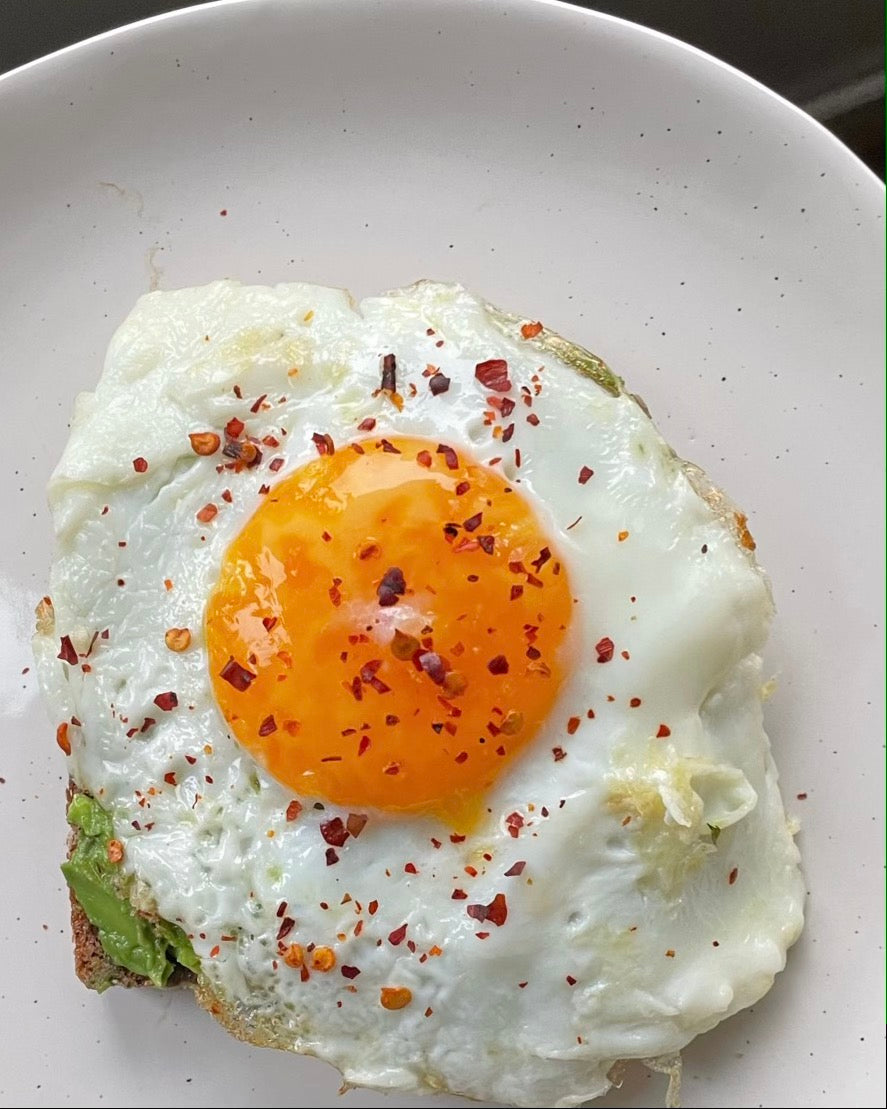This is a transcribed excerpt from the Womensync Podcast , episode #4 Food as a powerful tool for a menstrual cycle and balanced health with Maria Särén . Some adaptations of the text have been made. To listen to the podcast episode with Maria click here .
What are the benefits of eating animals?
One of the reasons is that animals contain nutrients in a more easily absorbable form than vegetables do. One nutrient that many women who are vegan or vegetarian have a deficiency or low levels of is iron.
Other nutrients found in animals that are more difficult to obtain through a plant-based diet are zinc, vitamin B6 and B12 which have several important functions when it comes to a functioning menstrual cycle and fertility. Another important aspect is that our sex hormones are built on cholesterol, which is mainly found in animal fats, which means that many people who have eaten a plant-based diet are often low on cholesterol in particular. In today's society, we often hear that high cholesterol is bad for health, but low cholesterol also has several negative effects. A study conducted on postmenopausal women with low LDL (low cholesterol) was found to have a higher risk of cardiovascular disease than those with normal values. So in summary, the benefits of animal products are mainly based on nutrient absorption and fats.
I (Susanna) was a vegan and loved being vegan, then I had missed ovulation and periods and then I understood the connection to the fact that my estrogen was very low. That type of diet is very low in cholesterol which meant that I needed to eat animal products to increase my cholesterol but also due to nutritional deficiencies. How do you know if you need to add it? How much? Does everyone have to eat it?
It becomes important to start from your symptoms. Do you have severe period pains? Missed period? Irregular ovulation? Another part is to check whether you are getting the nutrients you need, you can investigate this by taking a blood test and following up. There are of course many different reasons why people choose not to eat meat, but then it becomes important that you check that you are getting everything you need elsewhere, which can be difficult.
Isn't just supplementing with iron enough?
Iron is vital for all life on earth. A protective mechanism in the body is to introduce iron into various depots if, for example, we have an infection but also inflammation. So iron in large amounts can also be harmful to the body depending on what is going on in the body. On the other hand, iron is crucial for us to be able to produce energy as well as good thyroid function, which many people have problems with. So if you don't want to eat red meat, you should keep track of your values regularly and take supplements.
Many people have problems with low iron during pregnancy and then of course you need to take supplements as this can be harmful to the baby otherwise. If, on the other hand, you always need to take supplements despite eating iron-rich foods, in that case investigate why as it may be due to absorption in the gut.
Which supplements could you eat and which should you perhaps avoid? And which are important for the menstrual cycle above all?
The menstrual cycle and fertility work when health works. Magnesium is a mineral that is used up a lot as we live a lifestyle where we are exposed to a lot of stress. We need magnesium to produce energy in the body, it is not blood sugar that is energy, but we convert it into energy and that is where we need magnesium. Vitamin D is important during the winter, it is also not found in the food we eat in large enough quantities. Magnesium is needed to absorb and use vitamin D. Otherwise, I would say that we get most of what we need from the food we eat. In my practice, I work a lot with supplementation based on the individual's test results. You should not need to take supplements daily throughout the year unless you eat a restrictive diet.
Research has shown how birth control pills can rob the body of important nutrients linked to the menstrual cycle. How can this be prevented? If I am going to stop using birth control pills, how do I prevent these nutritional deficiencies?
It is important to remember that the pill is a medicine that has side effects. Several important nutrients such as magnesium, vitamin B and zinc can be boosted, but I wouldn't do it blindly. First check what you ingest and how you eat. Have a basis for your decisions. "When in doubt go without" is a pretty good approach to supplementation.
How long do I have to wait if, for example, I want to go off the pill and make the transition as smooth as possible?
You can do a nutritional test even before you stop taking birth control pills to see how you are doing. I know that many women are afraid of experiencing symptoms like acne, migraines and period pains when they stop. Again, it's about looking at the whole and not just supplements. For example, if you have eaten Jasmine, which is anti-androgenic and suppresses hormones that cause acne, then you can expect a small peak afterwards. It is possible to try to prevent it for a period by, for example, taking nettle or zinc, but supplements are only the tip of the iceberg with which to boost extra. Basically, it is always diet and lifestyle that apply.
What are your favorite menstrual cycle foods?
Vegetables, root vegetables and all kinds of animals as well as fresh herbs of various kinds!
–––––
Maria Särén works based on a functional medicine approach and is educated at the Kresser Institute, is a certified ICF coach and runs the women's clinic Liva in parallel with her own practice Emanera . Maria's mission is to help as many women as possible feel good and live in sync with their biology. Read more about Maria here and follow her on Instagram for more inspiration and knowledge.

